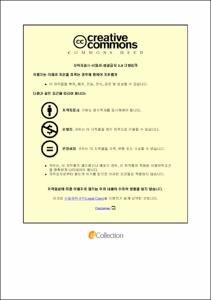한국 성인 근로자의 고용형태에 의한 질병 유병률 및 건강행태
- Abstract
- Korea's labor environment has been changed and the problems related to the employment type were treated important issues in these day. As the ratio of temporary workers increased relatively, the labor condition in Korea got worse than the past.
According to previous researches, they had some relationship between temporary workers and amount of intake, prevalence of disease. However, there were not enough researches and studies conducted widely on various chronic disease, health and nutritional attitudes.
This study identified the correlationship between employment type (Regular, Irregular) and the prevalence of chronic disease. The subjects of this study were 2,463 workers (1,248 regular and 1,215 irregular) from Korean National Health and Nutrition Examination Survey(KNHANE) from 2016 to 2018. The dependent variable was employment type and the independent variables were gender, age, income, education level, marital status, anthropometry, biochemical level, prevalence of chronic diseases, drinking, smoking, stress, cancer screening, physical activity, strength exercise, frequency of eating-out, dietary life condition, intake of energy and nutrition, occupations, working hours. This statistical analysis was conducted by SPSS 25.0.ver program.
As the results of this study, the differences of prevalence of disease according to employment type showed that irregular workers have significantly higher prevalence of diabetes mellitus(26.2%), and hypertension(8.4%) than regular workers(21.3%, 4.9%).Also, irregular workers worked shortly, earned less money. Even though they have more time, they don't spend time to do exercise, eat nutritious meal, go to hospital for cancer screening periodically to do check-up regularly.
If relieving these discriminations through national policy, irregular workers can invest more time to exercise, have chance to choose healthy food, to do regular check-up. the result of this study showed that the individual nutrition consultation targeted at the irregular workers with educational knowledge and personal environmental factors is necessary.|1. 연구 배경 및 목적
비정규직의 비율이 계속 증가하고 있으며 통계청에 따르면 2019년 기준 비정규직은 임금근로자의 31.1%를 차지했다. 그에 따라 비정규직 근로자의 고용 불안정, 낮은 임금과 열악한 근무조건 등의 문제들이 대두되고 있으나 이를 해결하기 위한 연구는 아직 충분히 이루어지지 않고 있다. 특히 근로자의 고용형태에 따른 질병 유병률, 건강 관련 행동, 근로환경 및 식생활과 같이 건강불평등과 관련된 요인들에 대한 연구는 아직 부족하며 최근 고용형태가 개인의 건강 상태 및 삶의 질에 미칠 수 있는 영향에 대하여 관심을 가질 필요가 있다.
본 연구에서는 고용형태와 근로 조건 등과 같은 사회적 요소가 질병 유병률, 삶의 질에 영향을 미치는 다양한 건강행태 사이의 연관성을 알아보기 위하여 근로자들을 정규직과 비정규직으로 나누어 두 그룹 간의 일반적 특성,신체계측, 혈액 성상,질병 유병률, 건강행태(흡연,음주,신체적 활동,건강검진),식생활(외식 빈도, 식생활 형편 점수,영양소 섭취량), 근로적 요소(직업군의 분류,주당 근로시간)의 차이점을 알아보았다.
2. 연구 방법
수집된 자료는 SPSS ver. 25.0 프로그램을 사용하여 분석하였다. 모든 분석은 대상자를 정규직 여부로 나누어서 분석하였다. 일반적 특성, 질병 유병률, 건강 행동, 외식 빈도 및 식생활 형편 점수, 직업군 분류에 관한 결과는 빈도 분석, T-test로 차이를 검정하였고 신체계측, 혈액 성상, 영양소 섭취량,주당 근로시간은 평균과 표준편차로 분석하였다. 통계학적 유의 수준은 양측 검정 p<0.05로 하였다.
3. 연구 결과
전체 대상자 중 비정규직 근로자는 여성의 비율이 더 높았으며 '50세-59세'와 '60-69세'라고 응답한 대상자가 유의하게 많았다. 가구소득은 '하'로 응답한 대상자가 정규직에 비하여 4배이상 많았으며 교육 수준의 경우 '초졸 이하'라고 응답한 비정규직 근로자의 비율이 유의하게 높았고 통계적으로 모두 유의한 차이가 있었다.(P<0.05) 전체 대상자를 성별로 구분하여 정규직 여부에 따른 신장,체중, 체질량지수, 허리둘레를 알아보았을 때 정규직 근로자 그룹과 비정규직 근로자 그룹 사이의 유의한 차이는 없었다.
근로자들의 평균적인 혈액 성상의 경우 총 콜레스테롤, HDL-콜레스테롤,중성지방, LDL-콜레스테롤 수치는 정규직 그룹보다 비정규직 그룹에서 더 낮게 나타났고 공복혈당,당화혈색소, 수축기 혈압 수치는 비정규직 그룹에서 더 높게 나타났다. 질병 유병률의 경우 정규직 근로자 그룹보다 비정규직 근로자 그룹에서 당뇨병, 고혈압, 우울증의 유병률이 높았으며 비만, 고혈압, 고중성지방혈증, 당뇨병,우울증 의사 진단 여부가 통계적으로 유의하였다.(P<0.05)
비정규직 근로자의 건강 행동의 경우음주빈도에서 '월 1회 이하', 흡연 정도에 대해서는'매일 피운다', 스트레스 인지 정도에 대하여 '거의 느끼지 않음'이라고 응답한 비율이 유의하고 높았다. 최근 몸이 불편했던 경험은 '있음', 암 검진 여부는 '없음'이라고 응답한 대상자가 유의하게 많았다. 신체활동여부를 묻는 질문에 대하여 '없음', 근력 운동 횟수에 관하여 '전혀 하지 않음'이라고 응답한 비정규직 근로자가 유의하게 많았다.
외식빈도의 경우 비정규직 근로자 그룹이 높은 편이었으나 식생활 만족도에 대한 점수는 낮은 편이었으며 영양소 섭취량의 경우 열량,탄수화물, 단백질,지방,수분, n-3계 지방산, n-6계 지방산,식이섬유,비타민C, 비타민A,비타민B1,비타민B2, 비타민B3,칼륨,칼슘,나트륨,인,콜레스테롤,포화지방산,단일불포화지방산,다가불포화지방산 모두 비정규직 그룹에서 적게 섭취하는 것으로 나타났다.직업군의 경우 비정규직 근로자들이 서비스 및 판매직,단순 근로업에 종사하는 경우가 비교적 많았으며 근로시간은 정규직 근로자들에 비하여 비정규직 근로자들이 유의하게 적은 편이었다.
4. 결론
본 연구결과 비정규직 근로자군은 정규직 근로자군에 비해 여성, 고령층과 저소득이라고 응답한 비율이 높았으며외식 빈도가 높고 식생활만족도에 대한 점수는 비교적 더 낮았으며 정기적인 암 검진과 신체활동의 실천빈도 또한 낮았고 이러한 비정규직 근로자는 다른 질병에 비해 특히 당뇨병과 고혈압에 대해 높은 유병률을 가지고 있었다.이러한사회경제학적 요인(근로형태,근로시간,임금)이 질병의 유병과영양학적인 행위 실천에 미치는 영향에 대해 좀 더 구체적인 연구가 필요할 것으로 생각된다.
- Issued Date
- 2021
- Awarded Date
- 2021-08
- Type
- Dissertation
- Alternative Author(s)
- Choi, Hui Jung
- Affiliation
- 울산대학교
- Department
- 일반대학원 식품영양학과
- Advisor
- 안병용
- Degree
- Master
- Publisher
- 울산대학교 일반대학원 식품영양학과
- Language
- kor
- Appears in Collections:
- Food Nutrition > 1. Theses (Master)
- 파일 목록
-
-
Download
 200000501802.pdf
기타 데이터 / 876.64 kB / Adobe PDF
200000501802.pdf
기타 데이터 / 876.64 kB / Adobe PDF
-
Items in Repository are protected by copyright, with all rights reserved, unless otherwise indicated.